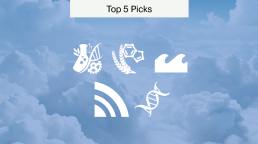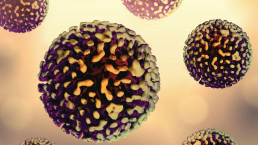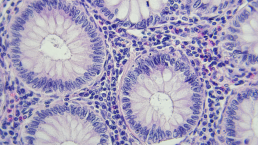
Insights from MDPI Top 5 Picks: September
From drought and climate change to ‘kelping’, the most read MDPI articles of September cover a range of topics. Here, we overview these papers and hear from some of the authors about why their work is important.
On Hens, Eggs, Temperatures and CO2: Causal Links in Earth’s Atmosphere
“This article is a continuation of one published in Sci in 2020, in which the causal relationship between atmospheric temperature and carbon dioxide concentration was posed as a hen-or-egg problem (each of the two can be a cause of the other), and two subsequent papers published in 2022 in the Proceeding of the Royal Society. In the latter we studied existing theories of causality, discussed their shortcomings, and developed a new stochastic methodology, applicable to large geophysical systems.
In the present article we applied this methodology to the temperature vs. CO2 problem using the longest available instrumental observations (almost 65 years). Contrary to what is commonly believed, our results, based on data rather than on theories and models, identified a unidirectional, potentially causal link with temperature as the cause, and the CO₂ concentration as the effect. This direction of causality holds for the entire period and for all time scales that can be resolved by the available data. The discussion, triggered by our considerations on the carbon balance, highlighted the importance of the biosphere in the carbon cycle – with a share of 96% vs. 4% of the human emissions. We showed that, in comparison to what happened in 1750, now there are additional emissions, mostly owing to a more active and expanded biosphere, because of the temperature rise.”
- Statement from authors
Daily Early-Life Exposures to Diet Soda and Aspartame Are Associated with Autism in Males: A Case-Control Study
Aspartame, an artificial sweetener, has been reported to cause neurological disorders in some people. Previous studies have reported increased health problems in the offspring of mothers who drank diet sodas/beverages during pregnancy.
This study assesses whether gestational/early-life exposure to aspartame increases the risk of autism spectrum disorder.
What’s at Play: Humpback Whale Interaction with Seaweed Is a Global Phenomenon
Previously, displays of object interaction by baleen whales were rarely observed. The increase in the whale population size and new technology, however, have allowed for new assessments which have yielded exciting results.
This study finds that “kelping” behaviour—where whales play with the seaweed they find floating in the ocean—appears to be widespread. This could provide benefits in terms of learning and socializing, as well as hygiene, such ectoparasite removal and skin treatment.
A Case Study of Drought during Summer 2022: A Large-Scale Analyzed Comparison of Dry and Moist Summers in the Midwest USA
“Our paper A Case Study of Drought during Summer 2022: A Large-Scale Analyzed Comparison of Dry and Moist Summers in the Midwest USA examines the drought conditions in the Midwest USA during the summer of 2022.
By comparing this summer with previous ones, the study aims to understand the atmospheric patterns and factors that contribute to drought occurrence. The research analyzes climate data, teleconnection indexes, surface conditions, and the concept of drought to provide valuable insights into weather patterns and enhance drought prediction capabilities.
Our study’s key findings have important implications for early-warning systems, mitigation strategies, and understanding the impact of climate change on the Midwest USA. Therefore, it is crucial for people to read this paper to gain a better understanding of drought dynamics and to inform decision-making processes related to water resource management and climate adaptation in the region.”
- Statement from authors
Simufilam Reverses Aberrant Receptor Interactions of Filamin A in Alzheimer’s Disease
The efficacy of simulfilam in the treatment of Alzheimer’s disease dementia is widely reported. And, it is now in Phase 3 clinical trials. It works by binding to an altered form of filamin A (FLNA), which is a gene that occurs in AD.
This article sheds light on the mechanism by which simulfilam works. It is found that the disruption of aberrant FLNA–receptor interactions critical to AD pathogenic pathways may promote brain health.
If you want to find out more about any of the studies mentioned in this article, you can read them for free on the MDPI website.










